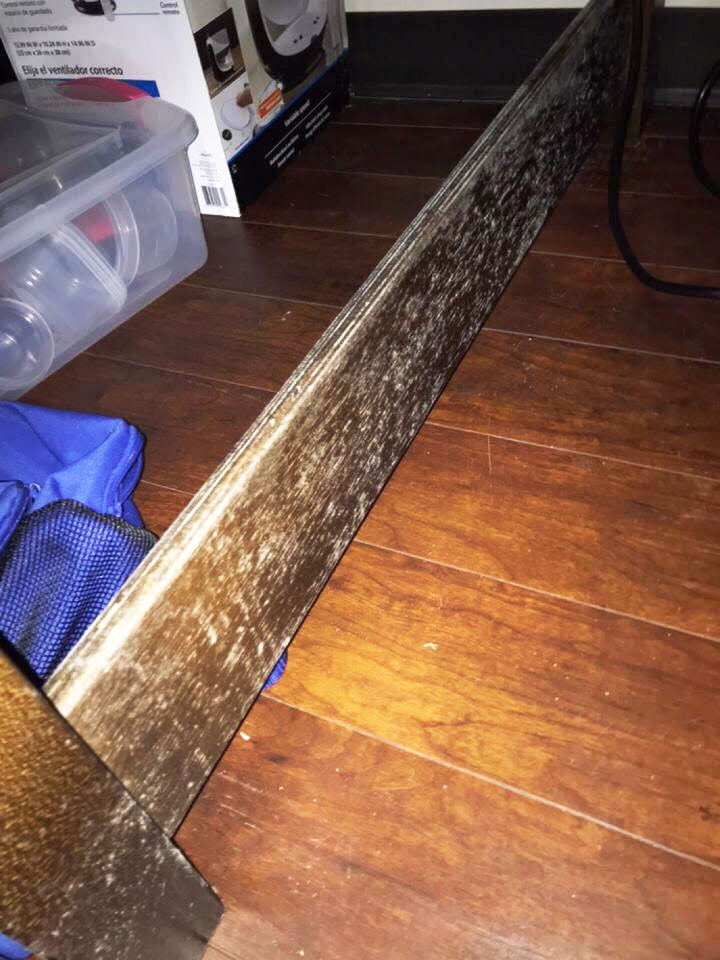The photos in this story were submitted by a resident of Luckyday Residential College.
Crosby Hall residents have reported being sick due to mold growing in residence halls and poor air quality.
Jim Zook, associate vice chancellor for strategic communications and marketing, said the university is aware of concerns of the air quality among Crosby residents and the “concerns are being taken seriously.”

Dirty air vents such as this one in Luckyday Residential College have caused some students on campus to become concerned with the air quality in their dorm rooms. Students have shared images to social media claiming to show mold growing in their dorm rooms. Photo courtesy: Lori Wilson
“We’re working diligently. We have had housing staff throughout the weekend talking with the students and parents,” Zook said.
The Daily Mississippian obtained an email sent to Crosby residents on Oct. 5 by Lionel Maten, assistant vice chancellor for student affairs and director of student housing, which said the university will “be inspecting rooms in the building and working with facilities and environmental services staff to clean up areas as needed.”
Zook said a heating, ventilation and air conditioning test was completed on Monday for elevated moisture and mold, and the results turned out to be “fine.” He said environmental tests for elevated levels of moisture and mold were conducted on Tuesday but the results have not been reported yet.
Kendra Ingram, a freshman political science major who lives in Crosby, said she was diagnosed with bronchitis earlier in the school year and has had a sore throat and cough throughout the year. Ingram said her portable air filter in her dorm room has turned black.
“I have been sick since August,” Ingram said. “When I went into the university Health Center in August, they knew I lived in Crosby right away and said that was the reason I was getting sick.”
Caitlyn Bone, a freshman elementary education major that also lives in Crosby said she has been sick, but she does not think it was caused by mold because she hasn’t seen any in her room.
“I noticed a significant amount of dust in my room within the first few weeks, so my dad advised me to put a filter on my vent,” Bone said. “I did so and was promptly told to remove it (by maintenance) as it was ‘causing’ dust.

Students have shared images to social media claiming to show mold growing in their dorm rooms in Luckyday Residential College. Photo courtesy: Lori Wilson Photo courtesy: Lori Wilson
Zook said the university has found a substance growing in some rooms, but the university cannot confirm what the substance is.
Bill Sothern, a certified mold expert and Chief Investigator and Founder of Micrologies Inc. in New York, said all too often he has seen many environmental investigations, particularly dealing with groups who have to spend money to fix a problem, take an air sample and simply end the investigation.
“Don’t let someone come in there and take the air samples and let them tell you something is okay because air samples are famously subject to false negative results,” Sothern said. “That’s a recipe for deception.”
He also said long-term exposure to mold can lead to allergy and asthma problems, and the mold remediation — the process of removing and cleaning mold — should be conducted by professionals.
“(Mold remediation) can be very expensive, and remediation has to be handled in a highly prescribed manner. The work manner has to be isolated and care has to be taken not to contaminate the surrounding areas,” Sothern said.






